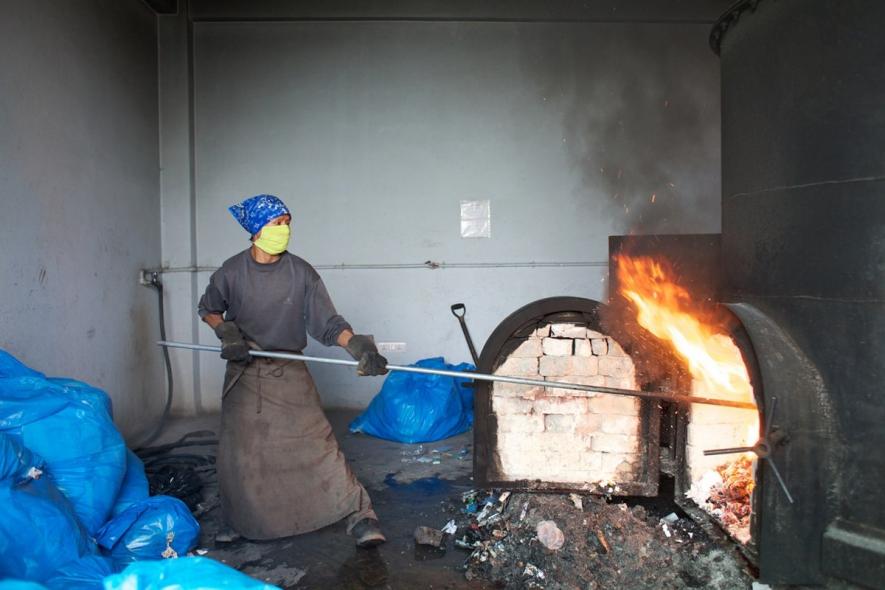Work-related Causes Kill Around 2 Million People Globally Each Year: WHO-ILO Report

Image Courtesy: WHO
As many as 1.9 million people died because of work-related diseases and injuries in the year 2016, according to the joint estimates from the World Health Organization (WHO) and International Labour Organization (ILO) published on September 17.
According to the first 'WHO/ILO Joint Estimates of the Work-related Burden of Disease and Injury, 2000-2016’, the majority of work-related deaths were due to respiratory and cardiovascular disease.The main causes of deaths were chronic obstructive pulmonary disease (450,000 deaths); stroke (400,000 deaths) and ischaemic heart disease (350,000 deaths). Non-communicable diseases accounted for 81% of the deaths.
Further, occupational injuries caused 19% of these deaths (360,000 deaths).
The study considered 19 occupational risk factors that include exposure to long working hours and workplace exposure to air pollution, asthmagens, carcinogens, ergonomic risk factors, and noise. Exposure to long working hours was a major risk associated with around 750,000 deaths. Following this, workplace exposure to air pollution (particulate matter, gases and fumes) was the risk responsible for 450,000 deaths.
Publishing the report, Dr Tedros Adhanom Ghebreyesus, WHO Director-General, said, “It’s shocking to see so many people literally being killed by their jobs.” He said the report was a “wake-up call” for nations and businesses to protect the health and safety of workers.
The report warned that work-related diseases and injuries can burden the health systems, reduce productivity and can have a catastrophic impact on household incomes of workers.
While work-related deaths per population globally fell by 14% between 2000 and 2016, deaths due to heart disease and stroke associated with exposure to long working hours rose by 41% and 19% respectively. The report said the numbers showed a rising trend in this relatively new and psychosocial occupational risk factor.
According to the joint report, workers in South-East Asia and the Western Pacific face a disproportionately large number of work-related deaths. This indicates a huge lack of workers safety in countries of this region. India is no exception. From 2000 to 2016, the yearly work related death toll in India rose from 3,45,418 to 4,16,910, which is an increase of around 20%.
Earlier this year, the IndustriALL Global Union along with its affiliates in India urged the government to take measures to improve occupational health and safety situation in the country. The organisation said that about 231 workers were killed between May 2020 and June 2021 in about 116 industrial accidents in chemical and mining industries across the country.
The country saw a series of deadly industrial accidents last year, resulting in the death of many workers. Notably, in Visakhapatnam, five accidents between May and August 2020 killed around 30 people while severely injuring others. In the deadliest of these accidents, Styrene gas leaked from LG Polymers factory in Visakhapatnam’s RR Venkatapuram, in which 15 people died and hundreds living in the villages surrounding the factory had to be hospitalised.
In August last year, nine people died and 15 others were injured in a major fire accident at Telangana State Power Generation Corporation Limited (TS Genco) hydel power plant located in Srisailam, Hyderabad.
Labour unions say such accidents are a result of negligence and lack of standard safety precautions taken by the managements, along with the hiring of unskilled workers in many cases to cut manpower cost.
Get the latest reports & analysis with people's perspective on Protests, movements & deep analytical videos, discussions of the current affairs in your Telegram app. Subscribe to NewsClick's Telegram channel & get Real-Time updates on stories, as they get published on our website.
























